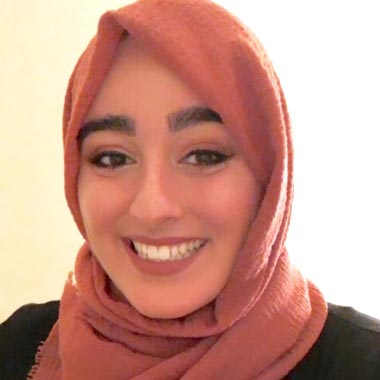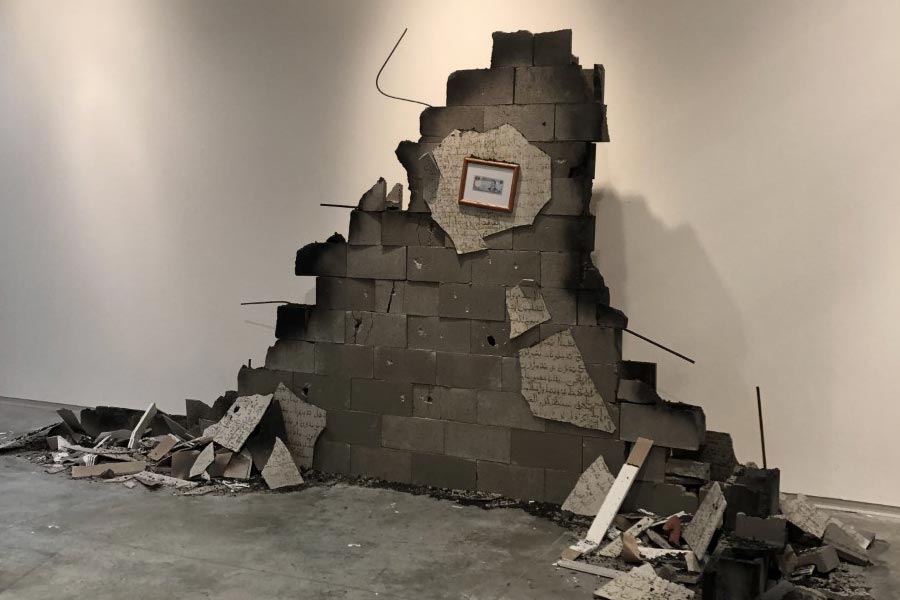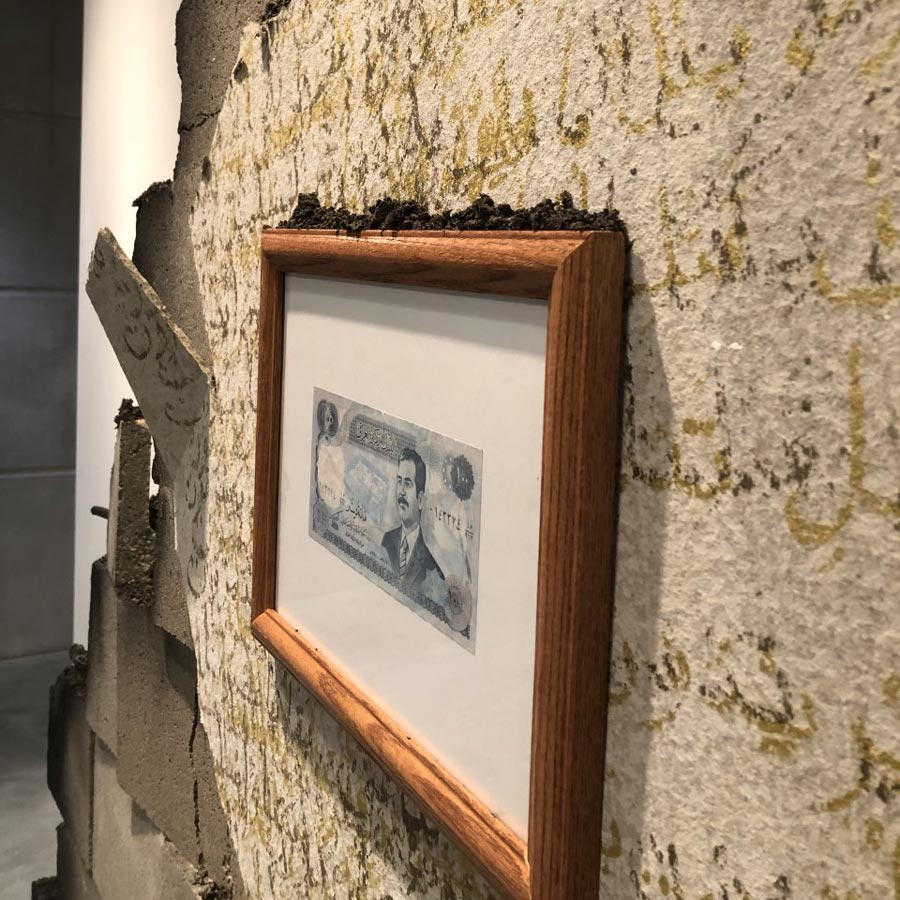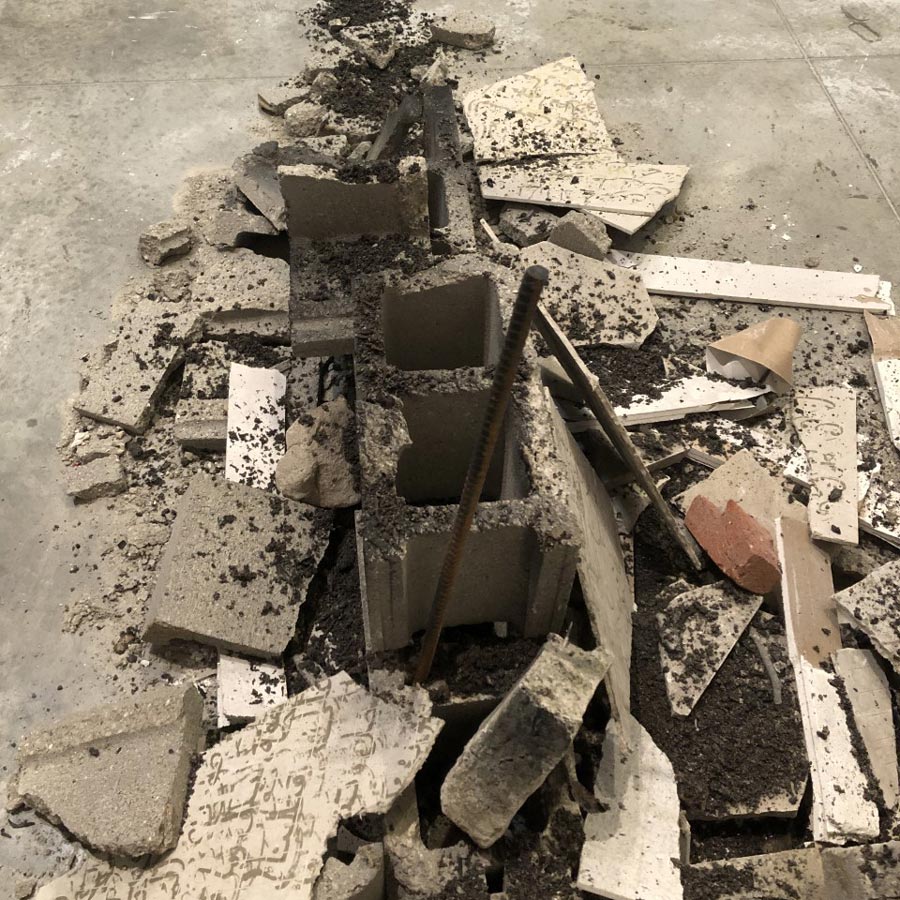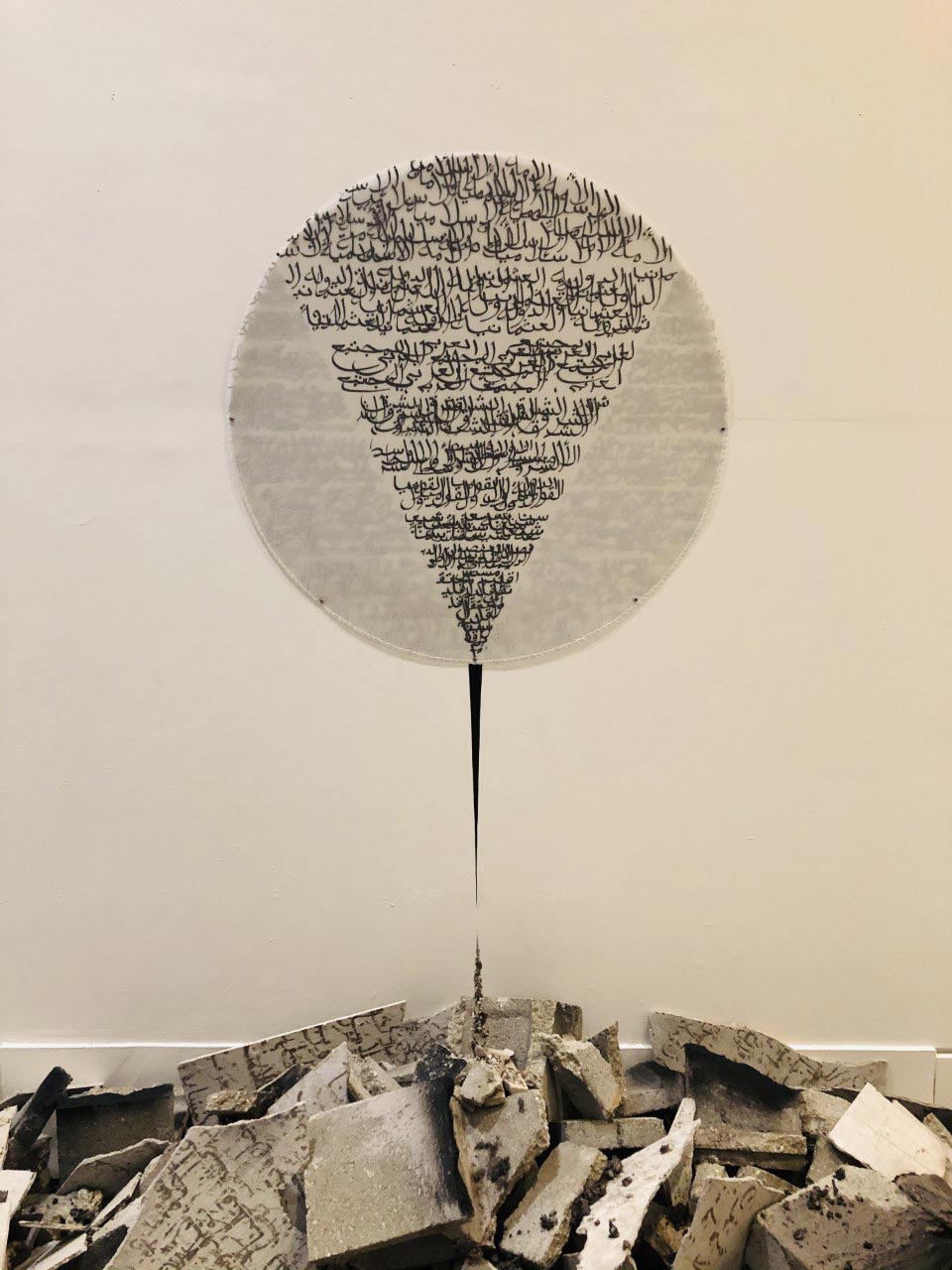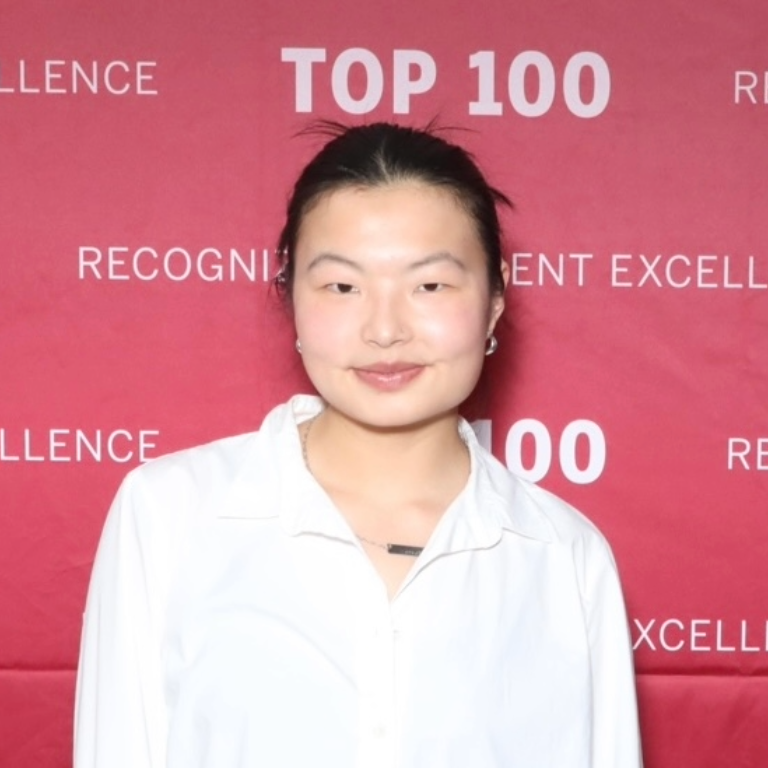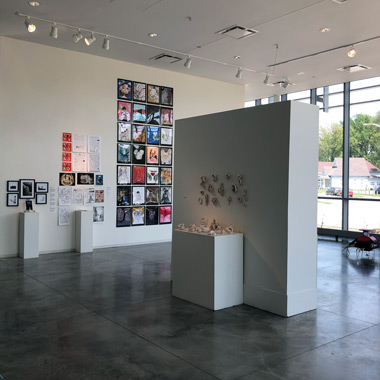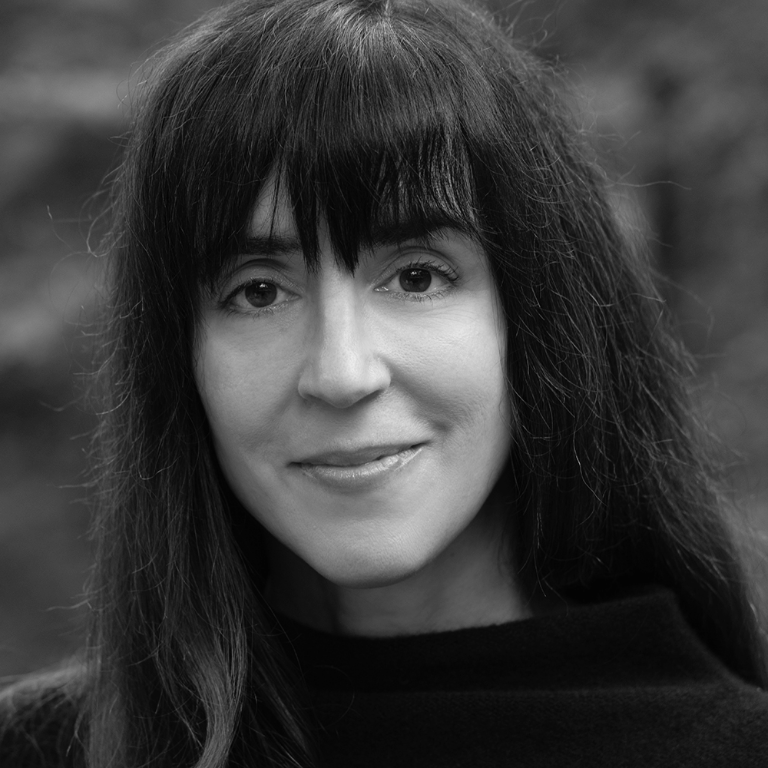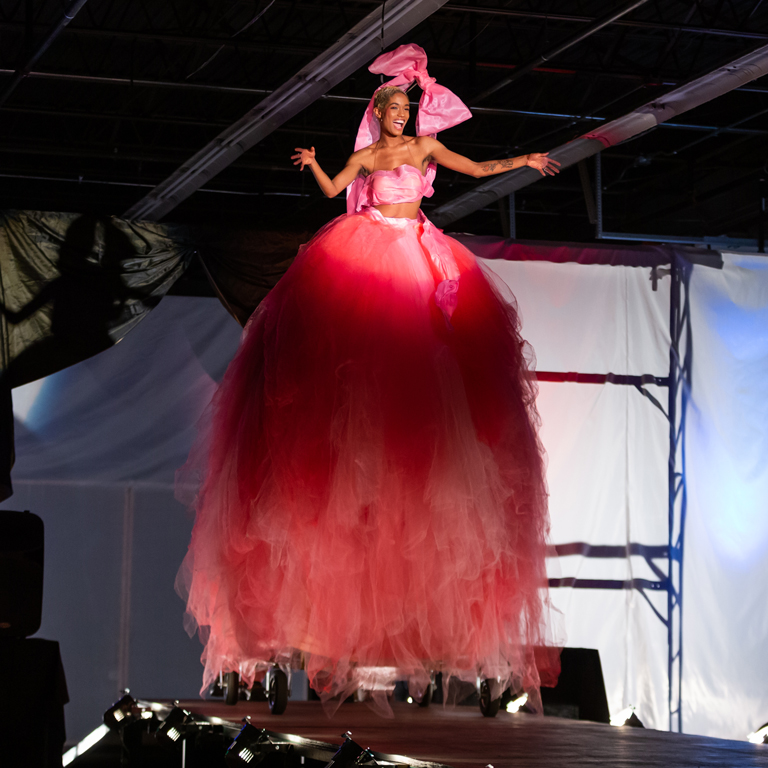HERRON: Tell us a little about your thesis project. What is the topic or theme, and what do you hope to achieve?
DOBOUNI: Right now, my thesis project is extremely exciting to me – as it should be. This project may be more exciting than the others because it will most likely be the largest installation I will create to date. I won't say too much because I'd love for everyone to come see it in person at the Berkshire, Reese, and Paul Galleries if they can, but I'm getting 3 to 5 cubic yards of sand delivered.
I'll also say that it's heavily based on true historical events that still accurately reflect and mirror the West's and the Middle East's relationship today. It touches on obscurity and the resulting devastation, but unrecognized loss on a global scale. The exhibition will be open to the public in early May.
HERRON: What has been your greatest success or most rewarding academic experience to date?
DOBOUNI: It may sound cheesy, but seeing my final thesis paper come together and take shape has been rewarding. It was a daunting task at the start of the year, and seeing my body of work intertwined with historical fact and literary evidence in a cohesive piece of text makes my art-making feel profoundly more professional.
Another exciting academic endeavor has been to collaborate on the design of a public seating area for the Herron grounds. A generous gift from the Christel DeHaan Family Foundation enabled two others and me to leave a permanent, creative imprint on the IUPUI campus. The fabrication has already begun on Herron's south-east corner (on the corner of Blackford St. and Ohio St. facing the fields). If you are near campus during the summer, you might be able to see it come together.
HERRON: Your contributions to Herron as a graduate fellow in the Office of Admissions and Student Services have ranged from administrative assistance to mentoring incoming students through the college transition. What impact has this two-year experience had on your studies?
DOBOUNI: Shannon McCullough's offer of a graduate fellowship before I had even begun my M.F.A. was encouraging. It confirmed that I had made the right decision by returning to Herron and that my work had been recognized and valued during my B.F.A. I believe the position has provided me with an opportunity to pursue a career in academic administration for which I would not have previously considered myself qualified. This fellowship has inspired me to seriously consider pursuing a doctorate in Education.
While I don't think it has had a direct impact on my body of work, seeing the administrative side of things has taught me as a student to always shoot your shot. I had no idea how many resources and opportunities students have simply by asking.
HERRON: What was the most influential class or professor for you?
DOBOUNI: Without a doubt, Patrick Kinsman's Art Theory and Criticism (HER-H 410). He has an unbelievable wealth of knowledge, and the class is a perfect complement to the M.F.A.'s preparations for writing our final thesis. I'm sure the class would have been even better in person, but even online, I was encouraged to think about how my body of work fit into the past and future of conceptual theory. The difference between how I was able to formally analyze my art before and after this class is like night and day.
HERRON: What is your next step after graduation?
DOBOUNI: I am currently applying for assistant curatorial positions as well as positions in higher education administration in the United States and abroad. I'm not sure where I'll end up, but it's fun to keep my options open. It would be a dream come true if I could land a job as an assistant curator at the Louvre Abu Dhabi.
HERRON: What advice would you give students who want to pursue a similar career path?
DOBOUNI: Don't limit yourself too soon. A career in the arts, in my opinion, is all about flexibility. Firstly, you should be flexible in terms of academic electives. I had no idea what printmaking was until I took my first class, and it became the focus of both my undergraduate and graduate studies. You could fall in love with something you have no knowledge of or experience with. Even if the course does not introduce you to your next artistic love, it will provide you with knowledge that you may be able to apply to your body of work in the future. Never underestimate the power of a learned skill.
The second type of flexibility is the ability to pursue professional opportunities that do not appear to be directly related to the path you believe you are on. These kinds of opportunities can provide you with additional marketable skills or networking contacts. Again, you might find a new and interesting career in an art-adjacent field that you want to pursue, or you might get to introduce your art to a new group of people and advertise what you do creatively.
HERRON: What is the one question you wish we had asked, and what is your response?
DOBOUNI: I was accepted into the School of Science at IUPUI and was two years into an Environmental Science degree with a geology concentration. Coming into IUPUI with a pretty standard academic background, I began to fail almost all of my classes by the second semester. Science was always an interest of mine, but I was always under pressure to pursue a degree that was practical and tangible, and my motivation to do something that I wasn't completely invested in was dwindling.
While that is a great way for many people to find their careers, it was clearly not working for me. Faisal Alqahtani, a really good friend of mine, sat me down one day and asked, "If you believed you could do anything, succeed at anything…no social and familial pressure…what would you do?" "Art," I said. After that, all he said to me was, "Live life simply."
I realized I'd been feeding a self-sustaining construct of expectation that I didn't have to be. When I decided to pursue a BFA full-time, my grades improved. My family needed some convincing but were more supportive than I had anticipated, and I was happier than I had been in a long time. Making a simple decision for myself changed the course of my career and my life, and I will be eternally grateful to Faisal for asking that simple question.
Follow Leena Dobouni's activities via Instagram.


